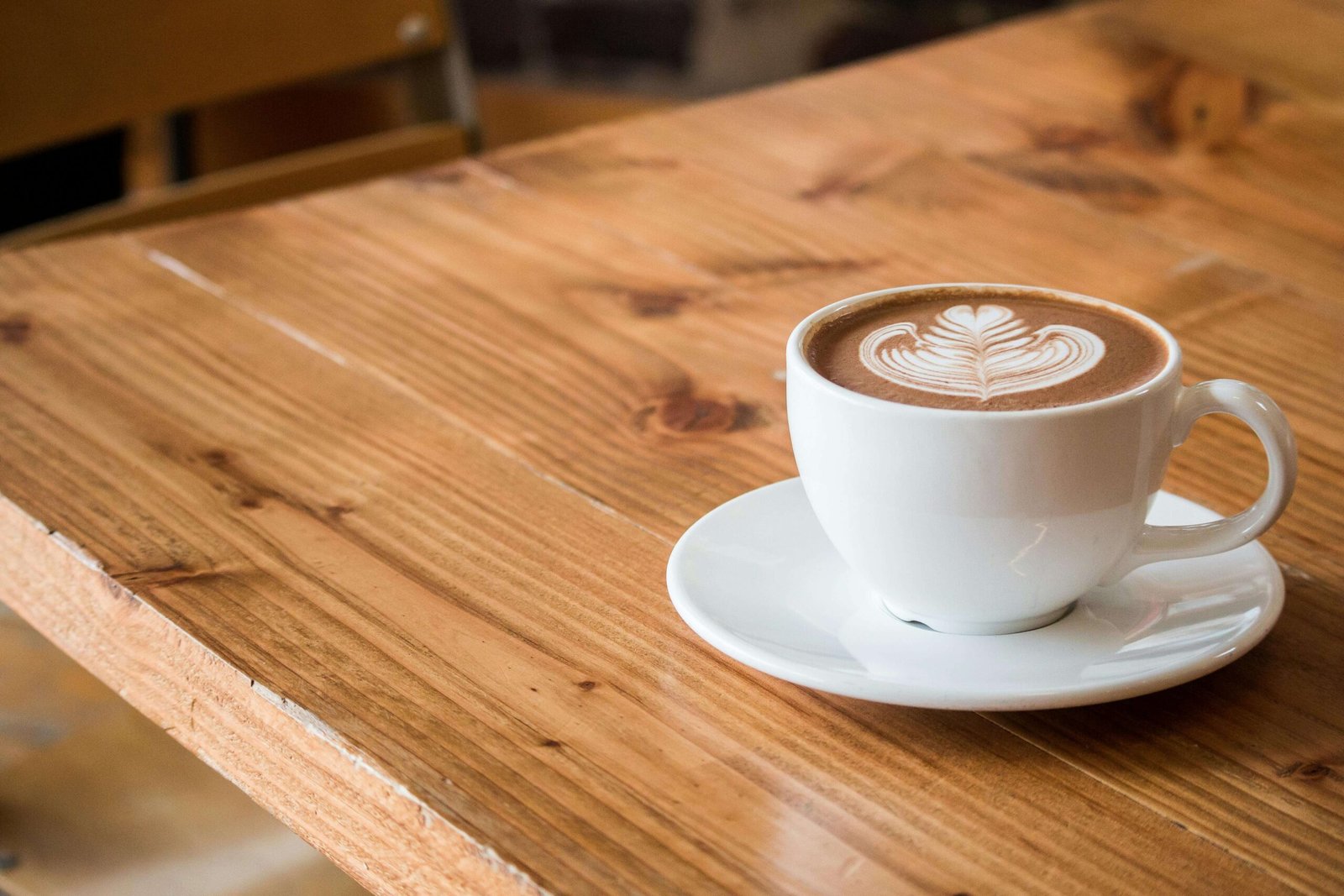
Does Powerade Have Caffeine? Exploring the Ingredients and Energy-Boosting Myths
News 6 Sherri Bryant November 19, 2024

When it comes to staying hydrated during workouts or long hours of physical activity, many people turn to sports drinks like Powerade for a quick energy boost. However, among the various options available, a question often arises: Does Powerade have caffeine? With caffeine being a common ingredient in many energy drinks, it’s easy to assume that sports drinks like Powerade might also include it to enhance performance. However, the truth is a little more nuanced.
In this article, we’ll dive deep into whether Powerade contains caffeine, how it compares to other energy drinks, and what it actually offers in terms of hydration and performance benefits.
Table of Contents
ToggleWhat is Powerade?
Powerade is a famous sports drink brand produced by Coca-Cola, designed to replenish electrolytes, provide hydration, and fuel the body during and after intense physical activity. It is often marketed as a drink that helps athletes perform better by restoring vital minerals like sodium, potassium, and magnesium that are lost through sweat. Powerade comes in a wide range of flavors, from fruit punch to mixed berry, and is commonly available in both regular and zero-calorie versions.
Ingredients in Powerade
To understand whether Powerade contains caffeine, it’s essential to take a closer look at its ingredients first. In general, Powerade’s primary components are:
- Water
- Sugar (or artificial sweeteners in the zero-calorie version)
- Electrolytes (like sodium, potassium, and magnesium)
- Flavorings (often derived from natural or artificial sources)
- Acidulants (such as citric acid for tartness)
- Preservatives (to maintain shelf life)
These ingredients work together to help rehydrate and replenish the body with essential electrolytes that can be lost during intense physical exertion. However, when you check the label of a typical bottle of Powerade, you won’t find caffeine listed as one of its ingredients.

Does Powerade Have Caffeine?
The short answer is: No, Powerade does not contain caffeine.
Unlike energy drinks such as Red Bull, Monster, or 5-Hour Energy, which are specifically designed to provide an energy boost through caffeine and other stimulants, Powerade is formulated primarily for hydration and electrolyte replenishment. Caffeine is not included in the ingredients list of Powerade, which makes it a different type of product compared to traditional energy drinks.
Why Doesn’t Powerade Have Caffeine?
Powerade is marketed as a sports drink designed to help with hydration and electrolyte balance rather than to provide a mental or physical energy boost. Caffeine is a stimulant that affects the central nervous system, often providing a temporary increase in alertness and physical energy. However, when it comes to hydration during exercise, caffeine can have a counterproductive effect.
Caffeine is a diuretic, meaning it can increase the rate at which your body expels fluids, which may contribute to dehydration if consumed in large amounts. For this reason, many sports drink brands, including Powerade, avoid adding caffeine in favor of ingredients that promote hydration and recovery.
How Powerade Helps with Hydration and Performance
Even though Powerade doesn’t contain caffeine, it still serves a crucial role in supporting athletes and active individuals by providing hydration and essential nutrients. Here’s how it works:
- Electrolyte Replacement
During exercise, especially in hot and humid conditions, the body loses a significant amount of electrolytes through sweat. These electrolytes, such as sodium, potassium, calcium, and magnesium, play a vital role in maintaining fluid balance, nerve function, and muscle contraction. Powerade contains a combination of these electrolytes, helping to replace what’s lost and reducing the risk of dehydration or muscle cramps.
- Carbohydrates for Energy
Powerade contains carbohydrates, primarily in the form of sugar, which provide a quick source of energy. While it’s not a direct substitute for more complex energy sources (like whole foods or protein-rich supplements), the simple sugars in Powerade can help replenish glycogen stores in muscles during prolonged physical activity, giving athletes the quick energy boost they need to sustain performance.
- Hydration
One of Powerade’s main selling points is its ability to hydrate effectively. The combination of water, electrolytes, and carbohydrates helps maintain fluid balance and prevent dehydration, a common issue during intense workouts or long periods of exertion. While water is the best source of hydration, sports drinks like Powerade are designed for situations where you need more than just water—where electrolytes and energy replenishment are essential.
Powerade vs. Energy Drinks: What’s the Difference?
While Powerade may be designed for hydration and performance, it’s essential to understand how it differs from energy drinks, which often contain caffeine and other stimulants.
Powerade: Hydration and Electrolytes
As mentioned earlier, Powerade is a sports drink, meaning its primary focus is on hydration and electrolyte replenishment. It’s best suited for individuals engaged in sports or physical activities where sustained energy, hydration, and recovery are essential. It doesn’t provide the same kind of energy boost that caffeine-rich drinks offer, but it helps maintain stamina during exercise by balancing fluids and electrolytes.
Energy Drinks: Stimulants and Boosts
In contrast, energy drinks like Red Bull, Monster, and Rockstar are designed to provide an immediate energy boost through stimulants such as caffeine, taurine, and B vitamins. These drinks are marketed more for a quick pick-me-up in situations where mental alertness and physical energy are required, such as during long hours at work, studying, or driving. The caffeine in these drinks can cause a temporary increase in energy and focus, but it may also lead to a crash once its effects wear off.
Comparison Summary:
FeaturePoweradeEnergy Drinks
Caffeine No Yes
Electrolytes Yes Sometimes
Carbohydrates Yes (for energy) Yes (for energy)
Purpose Hydration and electrolyte replenishment Energy boost, mental alertness
Diuretic Effects No Yes (due to caffeine)
In summary, Powerades and energy drinks have distinct purposes. Powerade is designed for those needing hydration and replenishment during exercise. At the same time, energy drinks are tailored to those seeking a quick burst of energy, usually with the help of caffeine and other stimulants.
Are There Any Powerade Alternatives with Caffeine?
If you’re looking for a drink that combines the benefits of hydration and caffeine, consider exploring some alternatives. While Powerade itself doesn’t have caffeine, other sports drinks and beverages on the market do include caffeine, including:
- Gatorade Energy Drink: Gatorade has a specific line of energy drinks, like Gatorade Endurance, which contains electrolytes along with added caffeine for extra energy during workouts.
- Celsius: Known for its fitness-focused energy drinks, Celsius combines caffeine from natural sources like green tea extract and guarana with electrolytes for hydration and energy.
- Bodyarmor LYTE + Caffeine: This beverage combines hydration with a low-calorie option, offering a mix of electrolytes and caffeine for energy.
These alternatives are specifically formulated to offer both hydration and caffeine, making them a better choice if you’re looking for a drink that provides the best of both worlds.
Conclusion: Powerade Does Not Contain Caffeine
To recap, Powerade does not contain caffeine. Its primary function is to hydrate and replenish electrolytes lost during physical activity. While caffeine can offer a temporary energy boost, Powerade focuses on hydration, providing sugars, electrolytes, and water to keep athletes performing at their best.
If you’re looking for a drink that will provide both hydration and a caffeine boost, consider exploring other options like energy drinks or specialized sports drinks that include caffeine. However, for hydration purposes and electrolyte replenishment during exercise, Powerade remains a solid choice without the added stimulant effects of caffeine.
So, the next time you’re reaching for a bottle of Powerade, rest assured—you won’t get the jittery effects of caffeine, but you will stay hydrated and fueled for whatever workout or activity lies ahead.
You may also read : The Torah Amberwood: A Symbol of Tradition and Elegance

As a trusted news source, Editorial Fox prides itself on upholding the highest standards of journalistic integrity. Our commitment to accuracy and fairness ensures that our readers can rely on us for reliable information.
Contact: editorial@rcopa.com
About Editorial Fox
At Editorial Fox, we are committed to delivering high-quality journalism that informs and engages our readers. Our team of experienced journalists and editors work tirelessly to bring you the latest news and analysis from around the world.
Copyright @2024 Editorialfox.com All Right Reserve.


Be the first to leave a comment